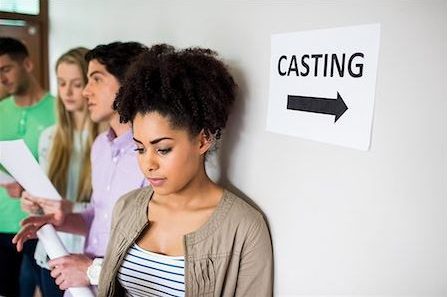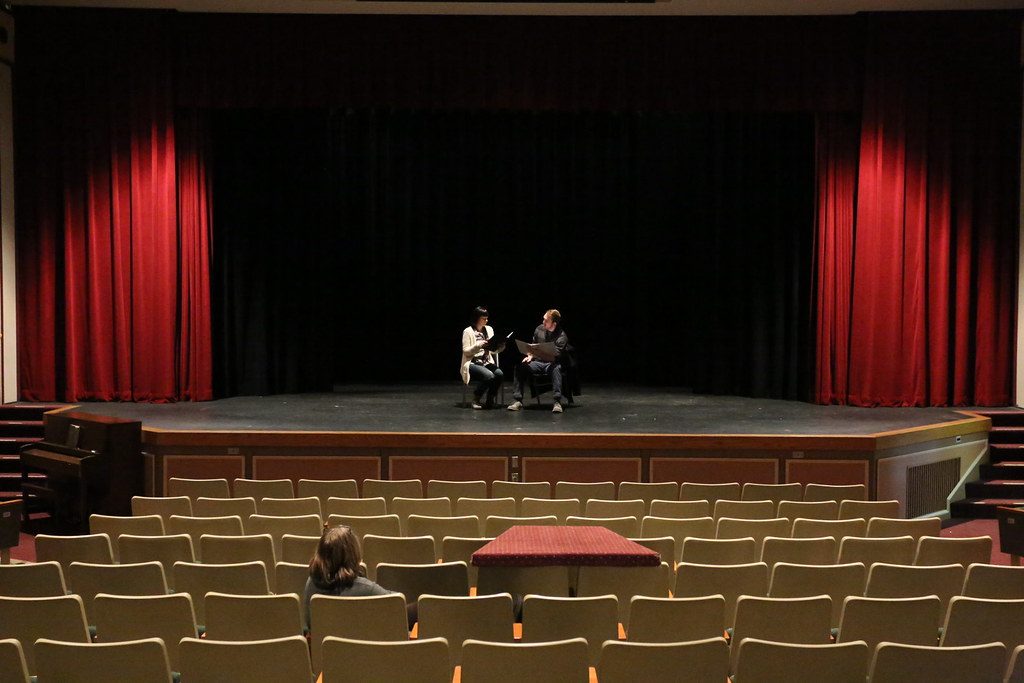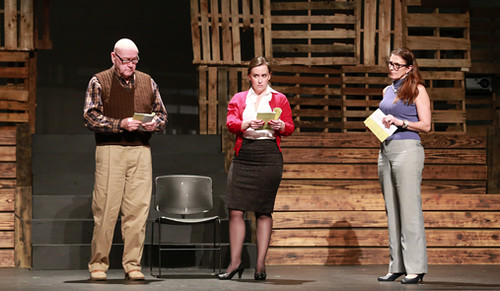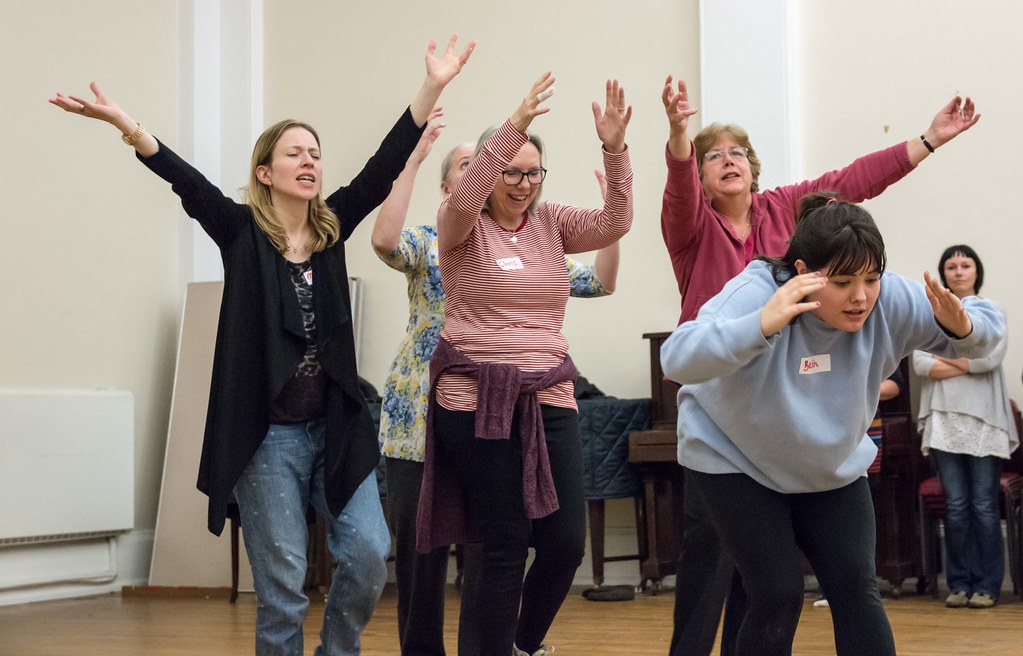
15 Ways to Stand Out in an Audition
Auditioning for theatre can be quite daunting, especially when it comes to finding a way to stand out. Not only are auditions both a learning experience and an opportunity to be hired, but it’s a chance to sell yourself to people you don’t know. That in itself can be a little nerve-rattling.
As we look forward to when theatres reopen across the nation, what better way to seize isolation then practicing your audition techniques. As such, we’ve comprised 15 tips to help you be more memorable when in front of an audition panel – and that’s being memorable for all the right reasons.
1. Know exactly what you’re auditioning for
It may seem silly to not know what you’re auditioning for, but you should always research the show, company, and script prior to your audition. Not only does it help with context for your performance, but it can show the panel that you are genuinely interested and aren’t there “just to get hired”
2. Know WHO you’re auditioning for
Following on from the previous point (and we can’t stress this enough), but research the company, it’s director, creative team, and anyone else who may be auditioning you. It’s good to know who’s on the audition panel and who you might work for. Not only will it help you establish a rapport with the theatre and its creatives, but if by chance you see them outside the room, then you can greet them. Such a gesture might just make you memorable when you get into the audition room because they will already know you from when you said “hello”.
3. Make a good first impression
A good first impression is crucial to standing out. No one wants to hire someone who looks like they don’t care about their appearance, what they are doing, or overall just seem like an unpleasant person to work with. The best way to make a good first impression is to be early, to be your best self, and to look your best.

4. Maintain your health
For any audition, you want to be the best version of yourself! So, make sure you are trying to stay healthy prior to the audition. That is plenty of rest, water, healthy food, and preparation. In the event of sickness, make sure you have your own prevention routine down pact (cue the panadol!). On the day, bring plenty of water to stay hydrated and some snacks just in case you’re waiting for your audition. Maintaining healthy habits will help you stay alert and ready for the day.
5. Wear the right attire
Wear something that not only makes you look good and professional, but also fits your body type, skin tone, facial features, and makes you feel comfortable. To stand out, add a pop of colour, a bright shirt, accessory, makeup, etc. These can help draw the panel’s eyes to you, and if you have another call after the first where audition, where you need to get changed (e.g. dance to singing), wear a similar colour to keep your appearance consistent. If you have a dance call first before the singing, acting or interview component (or vice versa), bring a spare change of clothes with you, either neatly folded or in a suit bag. Always look presentable and ready to face the audition challenges.
6. Keep a positive attitude
If two people walked into a room, one radiating confidence and focus and the other doubtful and lacking enthusiasm, you know which one the audition panel would consider. Attitude is everything and a friendly, positive personality will work wonders. It also shows how you can work within a cast and be a team player. Don’t be a downer in the audition. Look confident and energetic, regardless of what nerves are going on inside. You are being watched the minute you walk through the door and sometimes while you wait. You are a performer, so use those skills to show the panel that you are excited to be there (even if on the inside you’re super nervous!).

7. Strike up a conversation
While you’re waiting for your audition, don’t be afraid to talk to people around you as you never know who you might meet. It will also show the panel that you are a team player, outgoing and friendly. It also helps build chemistry with people, especially if you have to cold read against them in the audition.
Also, as our theatrical community is quite small, the person standing next to you in a previous audition could possibly be part of the panel at your next audition. The last thing you want is them remembering you weren’t friendly, which could have some effect on if you book the gig or not.
8. Develop your brand
By creating a ‘look’ or brand for yourself, you can create your own personal identity. It could be as simple as the colours you wear, the way you do your hair and makeup, or information you provide about yourself at the audition (like headshot or performance resume). These little things can make all the difference, help you be noticed more and provide insight on who you are as a creative.
9. Choose the right audition material
When choosing your audition pieces (either song or monologue), make sure you don’t do something that is considered overdone or something members of the panel may have worked on previously. If you present something they know too well the panel may find it hard to engage (i.e. imagine having just worked on ‘Annie’ only to have 50 renditions of “Tomorrow” at your next audition). It’s always good to find pieces that show off your strengths, suit the characters you are auditioning for, and show a little bit of your own personality.

Photography Tom Vander Well.
10. Know your audition pieces well
It may seem pretty stock standard, but know your material the best you can at the audition. It could be likely that someone might prepare the same piece as you and the only difference between them and you booking the gig, is someone performing and understanding the piece better. Always give yourself plenty of practice. Like Scar says in ‘The Lion King’, be prepared!
11. Be confident
Being intimidated can be a factor in what lets you down. Looking at someone else in the room and thinking they are better can really put you in a bad headspace when it comes to the audition. If you place yourself near the “good” people in the group it can help fuel that fire in your eyes by fighting to show your strengths as a performer. Also, self-confidence makes the man, so believe in yourself and your own abilities. With enough preparation and practice, you will be just as good as anyone else in the room!
12. Make bold choices
When singing, acting and dancing in an audition try to make a bold choice. Make big decisions, justify your approach and take a risk. The panel will know you’re willing to give new things a try and a director may be inspired and build on your performance. The panel want the best from you, and a bold choice will show that you are 100% dedicated and giving in this opportunity, which could make all the difference.

Photography The Chapman Cultural Centre.
13. Ask questions
Don’t be afraid to ask the panel questions during an audition. It will show that you care about what you are auditioning for and that you want to make your audition the best it can be. Also, it gives you an insight into the production and to see if it aligns with your goals, interests, expectations and availability.
14. Stay in character
When performing your piece, if you make a mistake stay in character. That means, if you forget the choreography, your lines or your lyrics, find a way to turn it into a character choice. There are many people in the industry who have booked roles from making a mistake but remaining in character. It will show your ability to improvise and your commitment to your performance.
15. Most importantly, have fun
Everyone will say this at some point, but always enjoy yourself. Most likely the audition panel will be rooting for you because they want someone to hire. If you don’t look like you’re having fun, it might suggest that you won’t enjoy the upcoming production.. Auditions are chances to learn about the industry, other creatives and yourself. Have fun with the experience, because it will shape you into a better performer.

Photography sourced by flickr (nican45).
At the end of the day, don’t be disheartened or discouraged if you didn’t receive a callback or are cast in the production. It may just come down to the fact that you didn’t look the part or have great chemistry with someone they were considering. Learn from all audition experiences. Not being cast doesn’t reflect you as a performer. In fact, keep pushing, learning and growing, and maybe next time you’ll land your dream role!
Do you have any audition tips or stories you want to share? Comment below and let us know your secrets to success!






